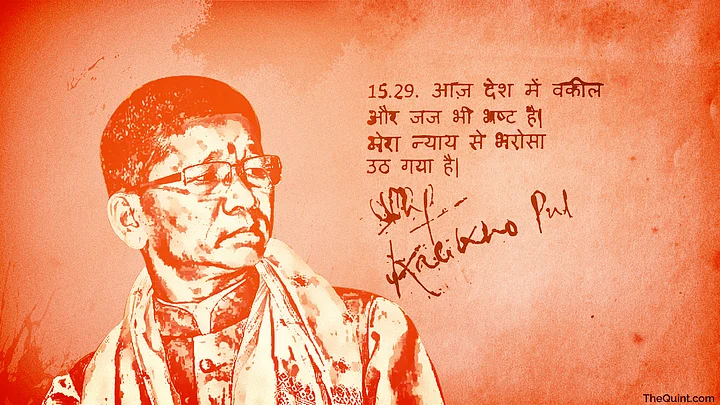Chief Justice of India Justice JS Khehar's decision to refer the complaint by Arunachal Pradesh's late chief minister Kalikho Pul's widow to a two-judge Supreme Court bench is a direct outcome of The Quint's relentless pursuit of the story that sought to bring to the fore allegations of bribe-taking by top apex court judges.
Barring a few stray reports, the entire national media – print and electronic – have shied away from covering this issue with wide-ranging ramifications, especially for the higher judiciary, which persistently blocked all efforts on the part of successive governments to push for greater transparency and probity in the professional conduct of judges.
Kalikho Pul’s first wife, Dangwimsai Pul, had written a letter to Justice Khehar seeking a CBI probe into his death. Treating the letter as a petition, a bench of the SC will be dealing with her plea.
The petition that was transferred to a bench of Justices Adarsh Kumar Goel and Uday Umesh Lalit will be heard on Thursday.
But what has surprised senior Supreme Court advocates is that the sensational matter, involving allegations that relatives of two top judges sought and took bribes from Arunachal Pradesh Congress leaders in the wake of the case of President’s Rule on the northeastern state, was not given to senior judges such as Justice J Chelameshwar or Justice Ranjan Gogoi to adjudicate.
Pul’s widow has sought an independent probe into her late husband's allegations contained in an explosive 60-page suicide note that he left behind before taking his own life on 9 August 2016.
(At The Quint, we question everything. Play an active role in shaping our journalism by becoming a member today.)
